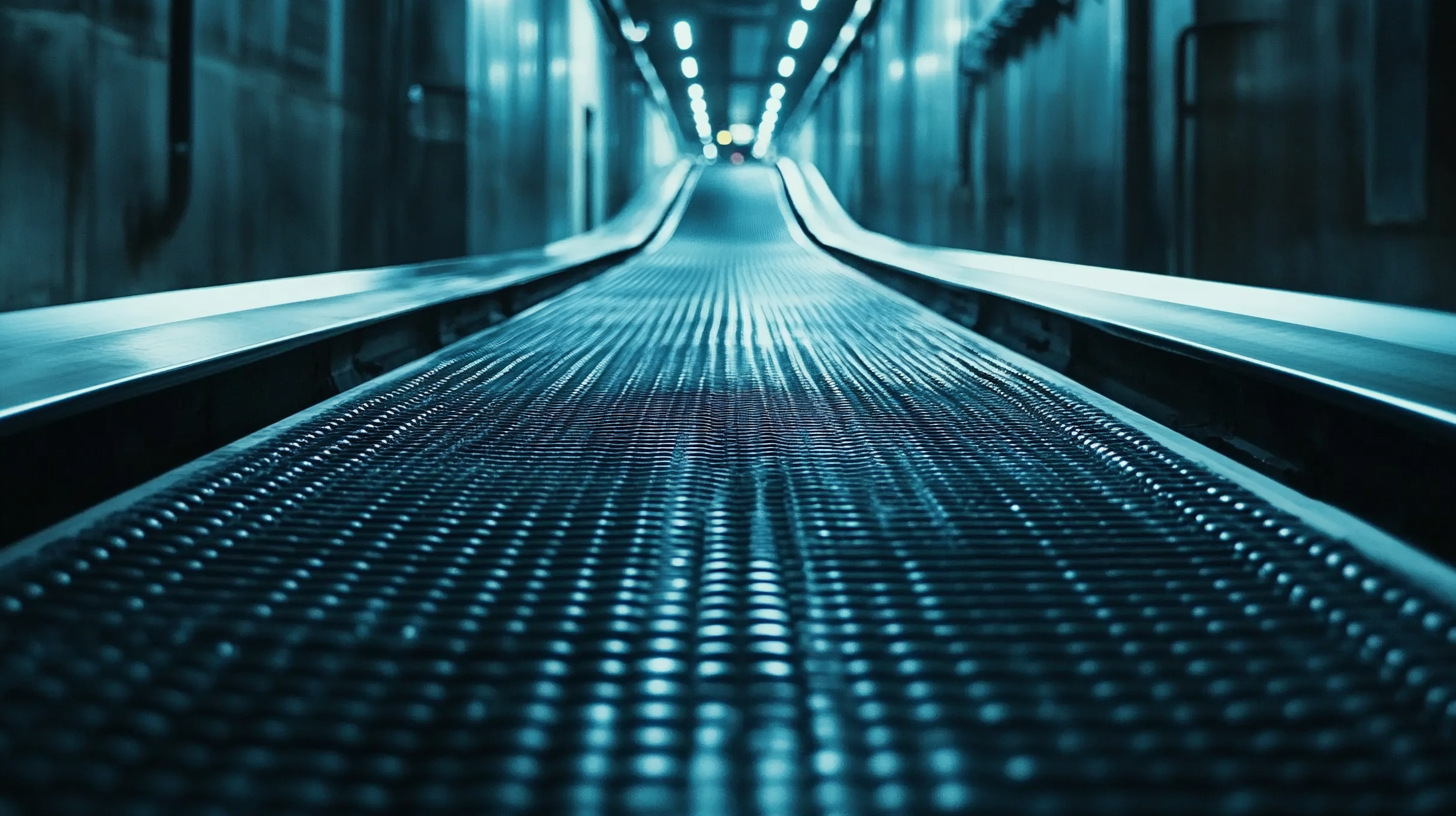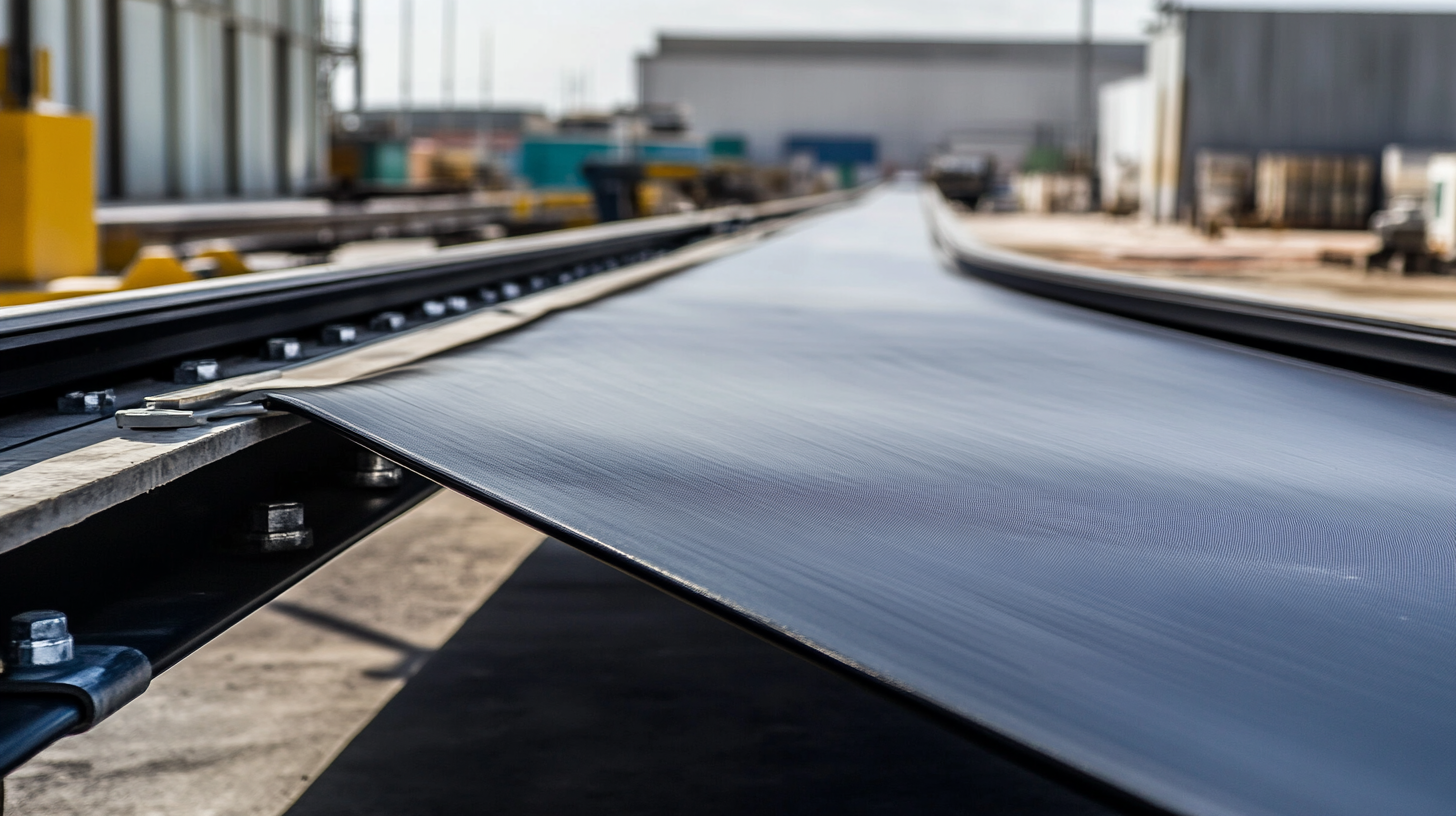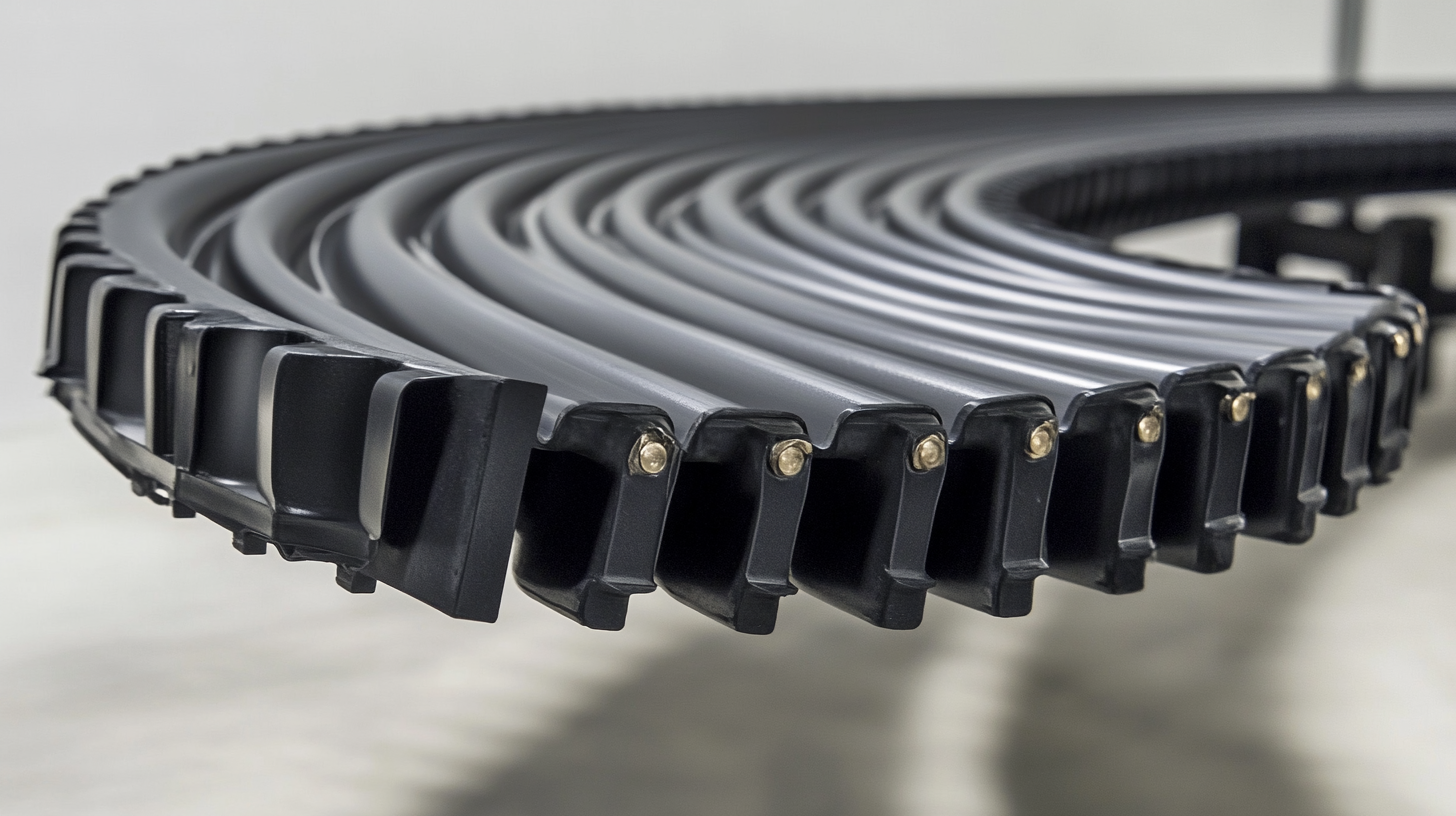In the fast-growing realm of global industries, the selection of materials plays a pivotal role in operational efficiency and cost reduction. A recent report from the Global Conveyor Belt Market revealed that the demand for conveyor belts is projected to grow at a CAGR of 5.2% between 2021 and 2028, with PVC conveyor belts seen to be the most growing option due to their remarkable durability and versatility. These belts are now being used across a wide range of sectors, with utmost importance placed on reliability and hygiene in food processing, manufacturing, and logistics, among others.
Compared to conventional materials, PVC conveyor belts have provided immense benefits thanks to their high resistance to abrasion as well as chemical interactions. A journal published by the International Journal of Industrial Engineering reported that the introduction of PVC conveyor belts can accelerate material flow efficiency by around 30%, ultimately increasing production rates and reducing downtime. The focus on sustainability as well as cost considerations by various industries emphasizes the need for organizations to appreciate the technical attributes and benefits of PVC conveyor belts in order to remain viable players in the global marketplace.

Their application in various industries has flourished for good reason-the unique properties that optimize performance and efficiency; high tensile strength, unusual flexibility, and resistance to abrasion and chemicals. This combination not only guarantees durability under heavy loads but also allows for smooth operation in different environments, thereby making them suitable choices in the fields of manufacturing, packaging, and food processing. Besides this, PVC conveyor belts have temper stability, meaning they withstand under variable temperatures. They successfully operate at both low and high temperatures, which is significant concerning materials handled in temperature-sensitive industries. Further, the surfaces of PVC belts can be texture-customized to amplify grip and reduce slipping thereby facilitating more optimized operation. In addition, the need for minimum upkeep and easy cleaning makes it even more attractive. Non-porous surface which resists staining and contamination makes it useful for hygiene-conscious environments like the food industry. The advantages will be the enhancement of health and safety standards and a resultant reduction in downtimes, thereby increasing productivity, underscoring the importance of operations time optimization in all global industries.

PVC conveyor belts have been gaining traction in various industries around the globe, thanks to their unique properties and advantages. These conveyor belts are made from polyvinyl chloride- a durable, versatile material that gives considerable advantages in Flexibility, chemical resistance, and strength. These unique properties enable the conveyor belts to facilitate the movement of diverse products across various industries from food stuff to heavy machinery components.
PVC conveyor belts, particularly in the food sector, are preferred for their capabilities of resisting moisture and bacterial activity. Their smooth surface helps to maintain cleanliness, thus serving the purpose of transport of food products in processing establishments. Similarly, in the packaging and bottling industries, these belts enhance conveyance while camouflaging surface damage.
The automotive and manufacturing industries rely upon PVC conveyor belts because they have high durability and reliable performance. The belts are more functioning even in high-stress environments, thus allowing the production line flow to remain uninterrupted. This, in addition to being lightweight, saves energy since less power is required to shuffle them around compared to heavier types. All these configurations place PVC conveyor belts to be a vital link in promoting operational efficiency across diversified sectors worldwide.

Because of their unique technical aspects, PVC conveyor belts have become the preferred conveyor belts in many industries. The comparative prototype criterion for PVC conveyor belts is their versatility and flexibility when set against rubber and metal belts. PVC belts are able to adapt themselves easily to different environments and operations, making them suitable for industries varying from food processing to packaging. Lightweight, they are easy to install and save energy during operation, which contributes to a considerable cost benefit in the long run.
Another important advantage of PVC conveyor belts is their resistance to moisture, chemicals, and oils. This durability permits these conveyor belts to retain their integrity and functionality even in some of the roughest industrial environments subjected to such elements. Moreover, PVC belts offer excellent grip and traction, making material handling processes much safer and more efficient. Generally speaking, PVC conveyor belts are also the lower-maintenance, easier-to-clean alternative to rubber conveyor belts, making them a wise choice for hygiene- and efficiency-conscious facilities.
The competitive advantage that PVC conveyor belts have in global industries comes from their unique combination of adaptability, durability, and cost-effectiveness, thus further consolidating their position as a preferred option compared to conventional materials.

Maintaining and caring for the PVC conveyor systems become crucial for trusting their system reliability in various industries, and therefore, their maintenance and respect for the life become very important. As the Conveyor Equipment Manufacturers Association CEMA reports, maintenance may add as much as 30% to the life of a conveyor belt, meaning a lot by virtue of the original investments into conveying systems. Maintenance practices like tensioning and alignments and lubrication become part of the regular operational procedure to minimize wear and tear on PVX conveyor belts for maximum operational efficiency.
The conveyor belts also present resistance to abrasion and chemicals claim another study published by the International Journal of Material Science and Engineering. Hence, such properties only act to enhance performance while contributing significantly to a decrease in maintenance requirements, hence making PVC preferred for use in food-processing, packaging, and material-handling industries. With good maintenance, the belts can normally last beyond ten years. This beneficial service life translates to reduced downtime and thus improves productivity, which in turn is a testimony to this choice in conveyor systems.
There are signs in the latest trends report released by the Association for Manufacturing Technology (AMT) that companies are integrating real-time monitoring technologies to collect information on conveyor performances. This proactive strategy allows industries to anticipate their maintenance requirements ahead of any failures. Thus, when operating at maximum efficiency, PVC conveyor systems will always be running with minimum disruption. By ensuring continuous maintenance and good materials, companies can ensure that the PVC conveyor system remains reliable for the long term.
The PVC conveyor belts are an important industrial innovation in manufacturing as they are modernized and developed for many purposes. One of the key advancements in PVC conveyor belt technology is the incorporation of new materials that improve their strength, durability, and operation. The production of recently developed high-performance PVC compounds has assisted in making wear-and-tear-resistant belts, which increase the longevity while decreasing maintenance costs for the manufacturers. Indeed, it is an innovation that adds productivity and is environmentally sustainable by creating less waste.
Among the other great strides are the high-tech advancements in replacement of PVC conveyor belts. The activities of manufacturing rely greatly on automation and IoT (Internet of Things) integration, where conveyor belts will speak to production equipment. Such connectivity allows real-time performance monitoring, which can further be used in predictive maintenance optimization for better operational performance. Companies have very effective data analytics that will enable them to quickly reconfigure their processes to avoid bottlenecks and optimize production in general.
Moreover, customization for PVC conveyor belt designs is becoming another priority from the manufacturers' end entailing a kind to become specific for exact needs from various industries. Food processing, logistics, and other kinds of unique developments are now modifying solutions for different specific operational environments and the products they handle. This customization, moving toward bespoke manufacturing, increases functionality, safety, and even legislative compliance, sealing PVC conveyor belts as the core of our present industrial operation.
The key properties of PVC conveyor belts include high tensile strength, superior flexibility, resistance to abrasions and chemicals, and the ability to maintain stability in varying temperatures.
PVC conveyor belts are considered durable due to their high tensile strength and resistance to wear and tear, allowing them to perform effectively under heavy loads.
PVC conveyor belts can function effectively in both low and high-temperature settings, making them suitable for handling temperature-sensitive materials in various industries.
The surface of PVC conveyor belts can be customized with various textures to improve grip and minimize slippage, which optimizes their operation further.
PVC conveyor belts require low maintenance and are easy to clean due to their non-porous surface, which resists staining and contamination, making them ideal for hygiene-conscious environments.
Advanced technology enhances the durability and efficiency of PVC conveyor belts, with improved compounds that resist wear, reduce maintenance costs, and promote sustainability by minimizing waste.
Smart technology in PVC conveyor belts facilitates automation and IoT integration, enabling real-time monitoring and predictive maintenance which optimizes operational efficiency.
Manufacturers focus on customization in PVC conveyor belt design to accommodate unique operational environments and product handling requirements across various industries.
PVC conveyor belts enhance productivity by reducing downtime, allowing for efficient operation, and providing tailored solutions that meet specific industry needs.
PVC conveyor belts enhance health and safety standards through easy cleaning and effective resistance to staining and contamination, which is particularly important in food production environments.